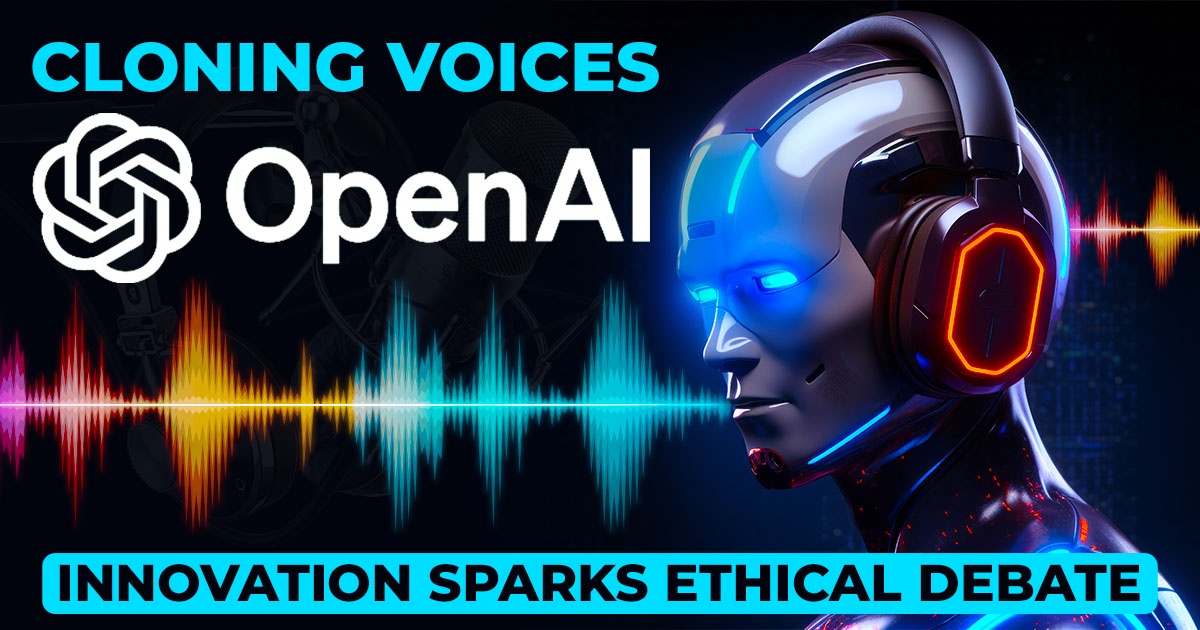In the realm of artificial intelligence,
OpenAI has continually pushed boundaries, offering cutting-edge technologies that both fascinate and raise ethical questions. One such innovation, their Voice Engine, has recently ignited a significant ethical debate regarding the cloning of voices.
OpenAI's Voice Engine utilizes advanced deep-learning techniques to generate highly realistic synthetic voices. While this technology presents exciting possibilities for applications such as speech synthesis, audiobook narration, and voice assistants, it also raises profound ethical concerns.
One prominent issue is the potential for misuse and manipulation. With the ability to open AI's clone voices with remarkable accuracy, there's a risk of malicious actors using this technology to fabricate false information or impersonate individuals for nefarious purposes. Imagine a scenario where someone's voice is cloned to create a convincing fake audio recording, leading to misinformation, defamation, or even financial fraud.
Moreover, there are ethical dilemmas surrounding the preservation of identity and authenticity. If anyone's voice can be cloned and manipulated with ease, how can we trust the validity of audio recordings as evidence? The erosion of trust in audio media could have far-reaching consequences for journalism, legal proceedings, and public discourse.
Innovation and Ethical Integrity,
“Precaution is better than cure,” as the wise ones say. No matter what advancements a society makes, responsible deployment and usage are also important. Strong regulatory frameworks are very important when it comes to mitigating the risks and staying safe against the unethical uses of AI.
1. Ethical Guidelines:
Organizations developing AI technologies must adhere to stringent ethical guidelines and principles, ensuring transparency, fairness, and accountability throughout the product life cycle.
2. User Consent and Privacy:
Users should have full control over their data and consent to the collection and use of their voice recordings. Implementing robust privacy measures, such as data encryption and anonymization, can help protect user privacy rights.
3. Regulatory Oversight:
Governments and regulatory bodies are important for overseeing the responsible use of AI technologies and enforcing compliance with ethical integrity and data protection regulations.
4. Education and Awareness:
Spreading awareness about AI technologies’ capabilities and limitations is essential for informed decision-making and for differentiating between authentic and AI-generated content.
OpenAI Voice Engine represents a remarkable feat of technological innovation with the potential to transform various aspects of our lives. However, its widespread adoption also poses ethical challenges and risks that must be addressed proactively. By embracing responsible development practices, fostering collaboration across stakeholders, and upholding ethical principles, we can harness the power of AI for the greater good while mitigating its potential for harm.
If You Want to read the best blogs like this visit click on link.


No comments yet